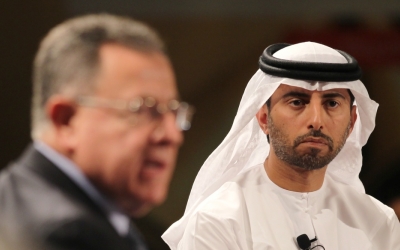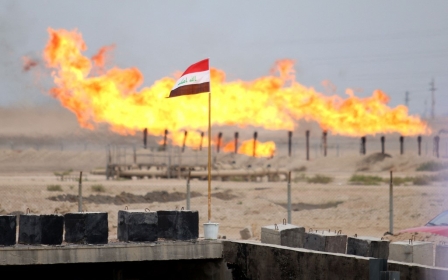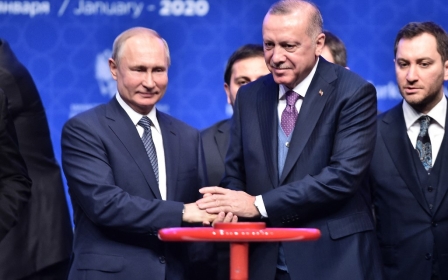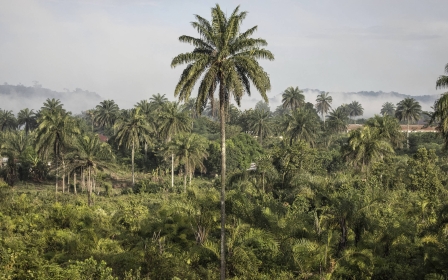Turkey and UAE in talks to produce hydrogen and build offshore wind farm
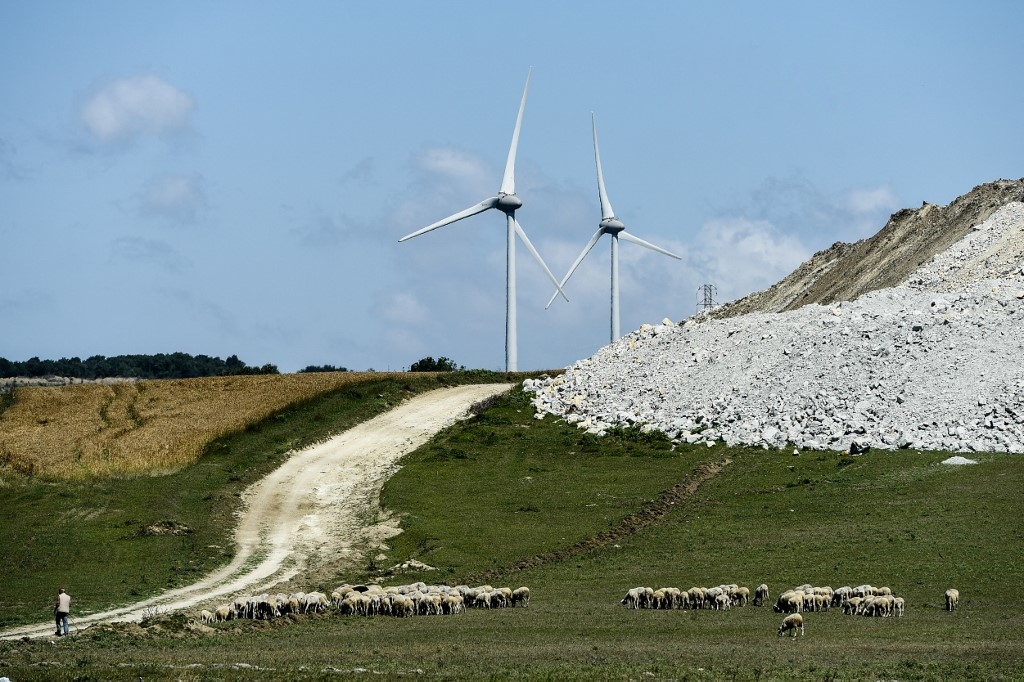
Turkey is in talks with the United Arab Emirates (UAE) to produce hydrogen and construct an offshore wind facility, the country's energy minister told journalists on Thursday.
Turkish President Recep Tayyip Erdogan signed energy cooperation agreements with the UAE in July that are estimated to be worth $29.7bn.
Energy Minister Alparslan Bayraktar said that as part of the deal, the Emirati companies were interested in Turkey’s energy transformation project, which aims to produce an annual 3.5 gigawatts of solar energy and 1.5 gigawatts of wind energy in the near future.
"One of the projects we discussed with the UAE was to produce hydrogen mainly from wind energy," he said, adding that negotiations on the matter were under way with the Abu Dhabi Development Fund (ADQ) and European companies.
New MEE newsletter: Jerusalem Dispatch
Sign up to get the latest insights and analysis on Israel-Palestine, alongside Turkey Unpacked and other MEE newsletters
Bayraktar also said Ankara was discussing a separate project to establish an offshore wind farm in the northwestern part of the country, in the Black Sea, as Turkey aims to generate 5,000 megawatts of wind energy by 2035.
“We can reach an agreement on this issue with the UAE and this will be the first project for offshore wind energy production in Turkey,” he said.
Bayraktar added that the UAE is also interested in Turkey's gas hub project, which was originally proposed by Russia for the Eastern Thrace region.
Turkey has worked to repair diplomatic ties with Saudi Arabia and the UAE over the past two years, after a decade of strained relations over Ankara's support of pro-democracy movements in the region. Turkey also sent troops to Doha when Riyadh and Abu Dhabi imposed a blockade on Qatar in 2017.
As ties warmed between Turkey and the Gulf states, business resumed. Abu Dhabi agreed last year to a $5bn currency swap deal with Ankara to help its struggling lira. Emirati companies have since announced several investments in Turkey.
In June, Turkish Vice President Cevdet Yilmaz and Finance Minister Mehmet Simsek travelled to the UAE to discuss "economic cooperation opportunities" with their Emirati counterparts, and they met Sheikh Mohammed bin Zayed Al Nahyan, president of the UAE.
Simsek, a former Wall Street banker and a darling of the markets, is seen as a credible person to shift Turkey's current unorthodox financial and monetary policies to internationally accepted economic models.
Ankara is in need of foreign investors, including hedge funds and foreign direct investment, to prop up its foreign reserves, which are depleted and below zero.
Middle East Eye delivers independent and unrivalled coverage and analysis of the Middle East, North Africa and beyond. To learn more about republishing this content and the associated fees, please fill out this form. More about MEE can be found here.


